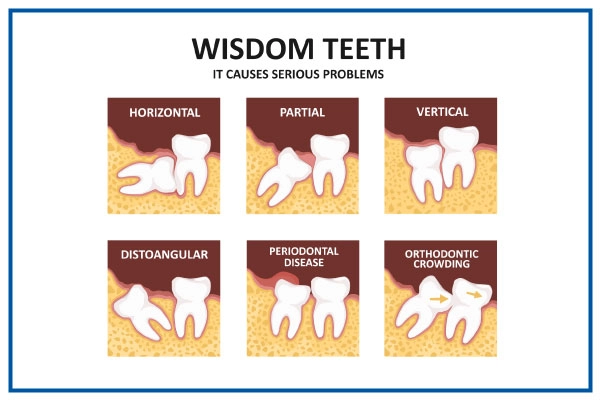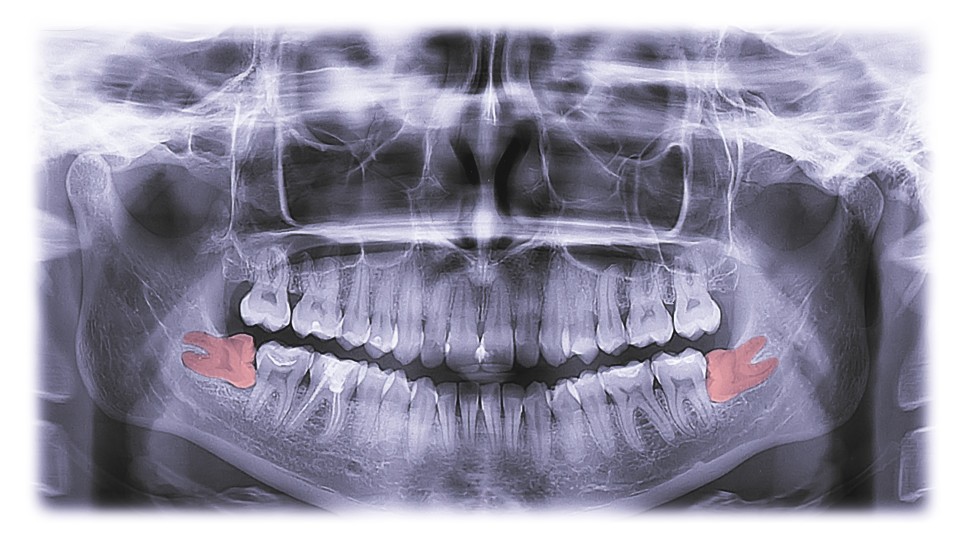Specialist Insights on Wisdom Teeth Removal Aspendale for Optimum Recuperation
Specialist Insights on Wisdom Teeth Removal Aspendale for Optimum Recuperation
Blog Article
Discovering Various Sedation Options for a Comfy Knowledge Pearly Whites Extraction Experience
The use of sedation during such treatments has become significantly typical to minimize anxiety and pain. With a range of sedation choices available, from regional anesthesia to basic anesthesia, each technique offers varying degrees of relaxation and discomfort control.
Local Anesthetic
Local anesthetic is a frequently used technique for numbing specific locations of the mouth during wisdom teeth removal procedures. By administering a neighborhood anesthetic, such as lidocaine, a dental expert can guarantee that the person remains comfortable and pain-free throughout the removal process. Neighborhood anesthesia works by momentarily obstructing the nerves in the mouth, preventing them from sending discomfort signals to the brain. This enables the dental professional to execute the extraction without triggering any kind of pain to the client.
Among the primary advantages of regional anesthetic is its targeted numbing result, which means that only the certain location being dealt with is affected. This localized method lessens the threat of systemic side effects and permits a quicker recuperation post-procedure. In addition, neighborhood anesthetic is considered to be a routine and safe technique in dental care, with marginal dangers involved when provided by a skilled professional.
Nitrous Oxide
Nitrous oxide, commonly called laughing gas, is a form of sedation typically utilized in dentistry to aid people unwind throughout oral procedures. It is a reliable and risk-free method that entails breathing in a mix of nitrous oxide and oxygen through a mask placed over the nose. One of the essential benefits of nitrous oxide is its fast start of activity, typically within minutes, providing virtually prompt relaxation for the patient. This sedation alternative enables the client to remain aware and responsive throughout the treatment while feeling at ease and comfy.
Additionally, nitrous oxide is known for its quick healing time. When the mask is gotten rid of, the impacts of the gas subside rapidly, permitting clients to resume their regular activities without sticking around sedative impacts. This makes nitrous oxide a hassle-free choice for those that need to drive themselves home after the oral visit. Nitrous oxide is suitable for individuals of all ages, making it a functional sedation option for knowledge teeth extractions and other dental treatments.
Dental Sedation
Dental sedation, a pharmacological technique used in dental care, entails the management of sedative medications by mouth to cause a kicked back state during oral procedures. This kind of sedation is commonly used for clients undergoing wisdom teeth extraction to reduce anxiety and discomfort. The drugs prescribed for dental sedation come from a course of medications called benzodiazepines, which have sedative, anxiolytic, and amnesic homes. Normally, the person takes the suggested medicine before the procedure, allowing ample time for the sedative results to hold.
One of the primary advantages of oral sedation is its simplicity of administration. Unlike intravenous sedation, oral sedation does not call for shots or needles, making it an my latest blog post extra comfy choice for individuals with a worry of needles. Additionally, oral sedation is considered safe and reliable when provided by trained oral specialists. However, it is vital for people to adhere to pre-operative directions provided by their dentist, such as abstaining from drinking or eating prior to the procedure to make sure the sedative medication functions as intended.
IV Sedation
Provided intravenously by experienced medical experts, IV sedation is an effective method utilized to cause a regulated state of deep relaxation and unconsciousness throughout dental treatments. Unlike oral sedation, which can be uncertain in its effects, IV sedation enables accurate control over the degree of sedation, making it an ideal option for complex procedures like knowledge teeth removals.
Throughout IV sedation, a sedative medication is provided directly right into the blood stream via a vein, allowing it to take effect quickly and efficiently. This method ensures that the patient remains not aware and comfy of the procedure while still preserving important functions such as breathing and heart rate.
Among the key advantages of IV sedation is its capability to offer a deeper degree of sedation contrasted to various other techniques, making it especially suitable for patients with high degrees of anxiousness or those undertaking extensive oral work (wisdom teeth removal aspendale). Additionally, the results of IV sedation usually wear off gradually after the treatment, decreasing the likelihood of grogginess or sticking around adverse effects. Overall, IV sedation supplies a effective and risk-free choice for ensuring a comfy and trouble-free experience throughout knowledge teeth extraction

General Anesthesia
Having discussed the advantages of IV sedation for wisdom teeth removal, the usage of basic anesthesia gives an alternate option for people requiring a deeper level of unconsciousness throughout oral treatments. General anesthesia causes a controlled state of unfamiliarity, ensuring the individual feels no pain or pain during the extraction procedure. This approach is particularly valuable for individuals with serious oral anxiety, complicated medical needs, or those going through numerous extractions concurrently.
General anesthetic have a peek here is administered by an experienced anesthesiologist who closely keeps an eye on the client's important indicators throughout the treatment. It involves the use of intravenous medicines or breathed in gases to generate a state of unfamiliarity. While under basic anesthetic, the patient will not understand the surgical procedure, experience any discomfort, or have any recollection of the procedure afterward.
Although general anesthetic is secure when administered by qualified experts, it lugs a slightly higher danger compared to other sedation alternatives - wisdom teeth removal aspendale. Clients considering general anesthesia for knowledge teeth extraction should review the potential threats and benefits with their dental expert or oral surgeon to make an informed choice based upon their specific requirements and clinical history

Final Thought
In conclusion, numerous sedation choices are available to ensure a comfy wisdom teeth extraction experience. Dental sedation and IV sedation deal deeper degrees of relaxation, depending on the patient's requirements.
Nitrous oxide is ideal for clients of all more info here ages, making it a functional sedation option for knowledge teeth extractions and various other oral procedures.

Report this page